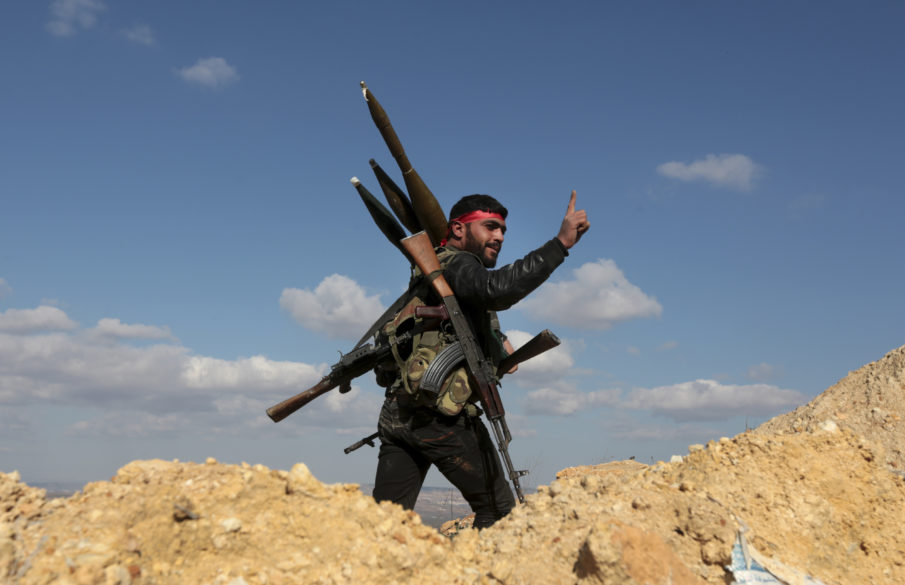In a recent interview, Kurdish prime minister of the KDP (Kurdish Diplomatic Party) and former president Masoud Barzani said, “The deployment of the Peshmerga to help their fellow Kurds in Afrin against Turkey’s military operation will not help solve the problem.” The conflict in Afrin has stirred up a lot of sympathy and support for both parties involved in the fighting.
This however has not changed the fact that many do not want to get involved in the conflict. Barzani later stated, “We are deeply concerned. And we do hope that this military operation would stop as soon as possible, because the fighting and wars are not the solution to the problem,” and that, “Sending Peshmerga will not solve the issue there. The best assistance we can offer is trying our best to stop the offensive.”
In 2014, the Islamic State attacked the Syrian city of Kobane and brought the region to its knees. Following this, Barzani sent the Peshmerga to defend the city alongside the YPG. When this happened, Turkey sanctioned the movement, as the Deployment of Peshmerga would have to pass through Turkish territory to reach Kobane. There are alternate routes available this time around to the Peshmerga but Barzani is attempting to play off the perceived winner; that would be the NATO partner with the 2nd largest military in the world.
A representative and high-ranking member of the Kurdish Patriotic Union of Kurdistan (PUK) member, Mala Bakhtiar, spoke of the willingness by his party to send their Peshmerga to Afrin. He made it clear that their soldiers were prepared to fight against the Turkish military’s Operation Olive Branch, the chosen title for the Turkish forces’ efforts.
He was also quick to recognize that to undertake such an endeavor would be nearly impossible. Hollow words that may have been made with good intent, are ultimately pointless without action. He stated that the YPG and their efforts were “sacred” and expressed his hope that Turkey would be willing to reach a peaceful resolution by engaging in diplomacy with Kurdish representatives.
Turkey views the YPG as having a direct link to the PKK (which is mostly accurate), a group fighting for cultural and national rights of Kurds by conducting guerrilla warfare operations from within Turkey’s borders for more than 30 years. The PKK, while labeled as terrorists by Turkey and operating almost exclusively against it, is the older sibling to the YPG. The YPG however is directly supported and supplied by the U.S.-led coalition operating in the Middle East; primarily combating Islamic terrorism perpetrated by the Islamic State. The YPG, officially, denies the accusations of links to the PKK.
A senior analyst employed by for ICG (International Crisis Group), Noah Bonsey, made the suggestion that the Turkish and Kurdish cannot resolve their discrepancies without the support of one another. The call was made for Turkey and Kurdistan to attempt to continue the peace that was seen prior to 2015 and for both sides to continue negotiations with each other. It was proposed that both sides and their forces would decease any cross-border activities and peace talks would immediately follow. In reference to the current clashes occurring in and around Afrin, Bonsey predicted, “is likely to prove indecisive and costly for both sides,” and that the whole ordeal was causing a “headache” for the United States government.
While the two countries, the U.S. and Turkey, are NATO allies, both sides strongly disagree with each other when it comes to the fate of Kurdish lands and people now that the Islamic State has collapsed. Presidents Erdogan and Trump met this past week, the two discussed the current situation in Syria; Afrin in particular. Neither has reached an agreement or solid position on the future of the region and as such, the violence continues.
Already have an account? Sign In
Two ways to continue to read this article.
Subscribe
$1.99
every 4 weeks
- Unlimited access to all articles
- Support independent journalism
- Ad-free reading experience
Subscribe Now
Recurring Monthly. Cancel Anytime.











COMMENTS